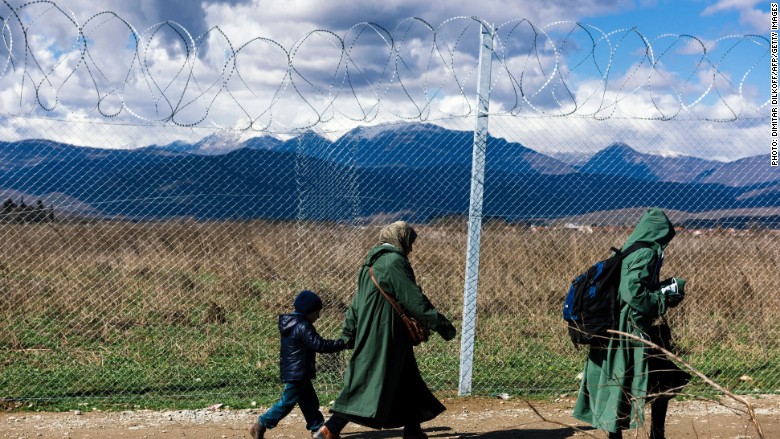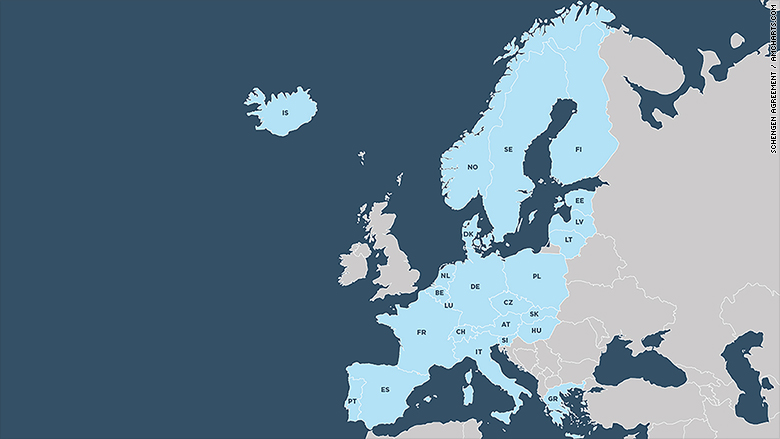
Europe is back in deflation, and business and consumer confidence is sagging.
The last thing it needs is another economic headache, but the refugee crisis might deliver one if it isn't fixed soon.
To slow the influx of migrants, countries are reintroducing border controls in a region used to traveling and trading freely. If they return in full, the cost to Europe could be as high as 18 billion euros ($20 billion) per year, the European Commission said Friday.
About 1.2 million people applied for asylum in the European Union last year, double the number in 2014, and more than half of them came from Syria, Afghanistan and Iraq.
The influx shows no signs of abating: the International Organization for Migration estimates that 130,000 migrants crossed the Mediterranean sea to Europe in the first nine weeks of this year.
The European Union is struggling to cope with the humanitarian emergency. Eight countries have reintroduced border controls in the last six months, threatening to blow apart the region's Schengen system of border-free travel and kill a core EU principle of freedom of movement.
EU countries and Turkey will meet Monday to discuss the refugee crisis. The meeting has been billed as a last chance to save Schengen.
If they fail, and border controls are reintroduced across the 26 members of the passport-free zone, the region will very quickly feel the pain.
"These costs would be concentrated on certain actors and regions but would inevitably impact the EU economy as a whole," the European Commission said Friday.
Here's where the pain would be immediately felt, according to the Commission:
Higher transport costs
Countries such as Poland, the Netherlands or Germany would face more than 500 million euros of additional costs for the road transport of traded goods.
For countries such as Spain or the Czech Republic, the additional costs to businesses would exceed 200 million euros.
Lost time for commuters
The reinstatement of passport checks would lead to delays at borders.
That would cost Europe's 1.7 million cross-border workers, or the companies that employ them, between 2.5 billion and 4.5 billion euros in time lost.

Fewer visitors
Europe's tourism industry would suffer too. The European Commission estimates that 13 million tourist nights could be lost, with a total cost of 1.2 billion euros.
More officials
Governments would have to hire more staff to police the borders, costing them about 1.1 billion euros more in administration costs.
If the border controls remain in place long term, the costs will mount. A report prepared for the French government last month estimated that the return of border checks and passport controls could cost Europe as much as 100 billion euros ($110 billion) over a decade, knocking 0.8% of Europe's GDP by 2025 in the worst case.
The Schengen area includes four countries outside the European Union -- Iceland, Lichtenstein, Norway and Switzerland. Six EU countries are not part of the zone -- they have either opted out of the agreement, or are still waiting to be admitted.


